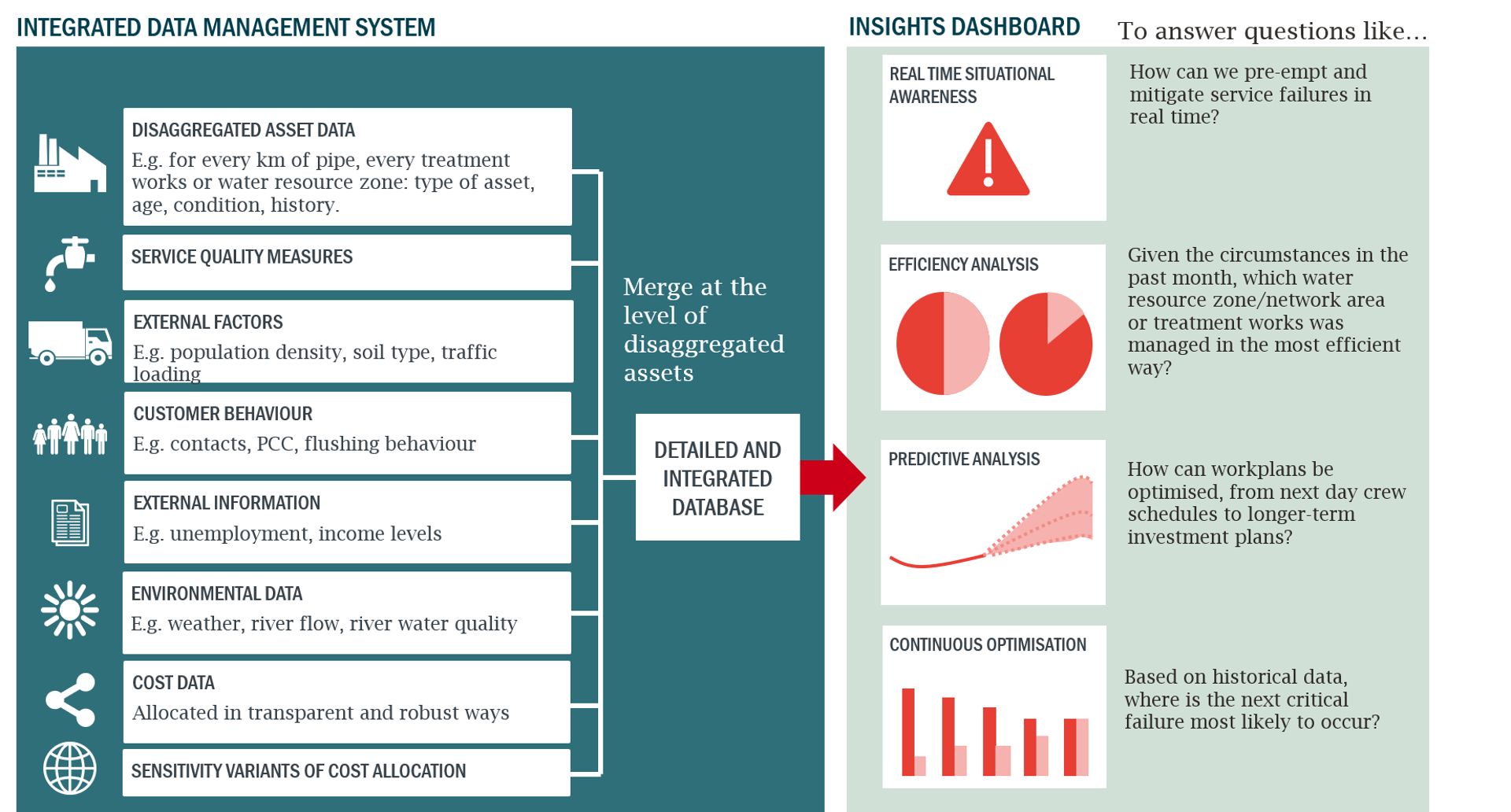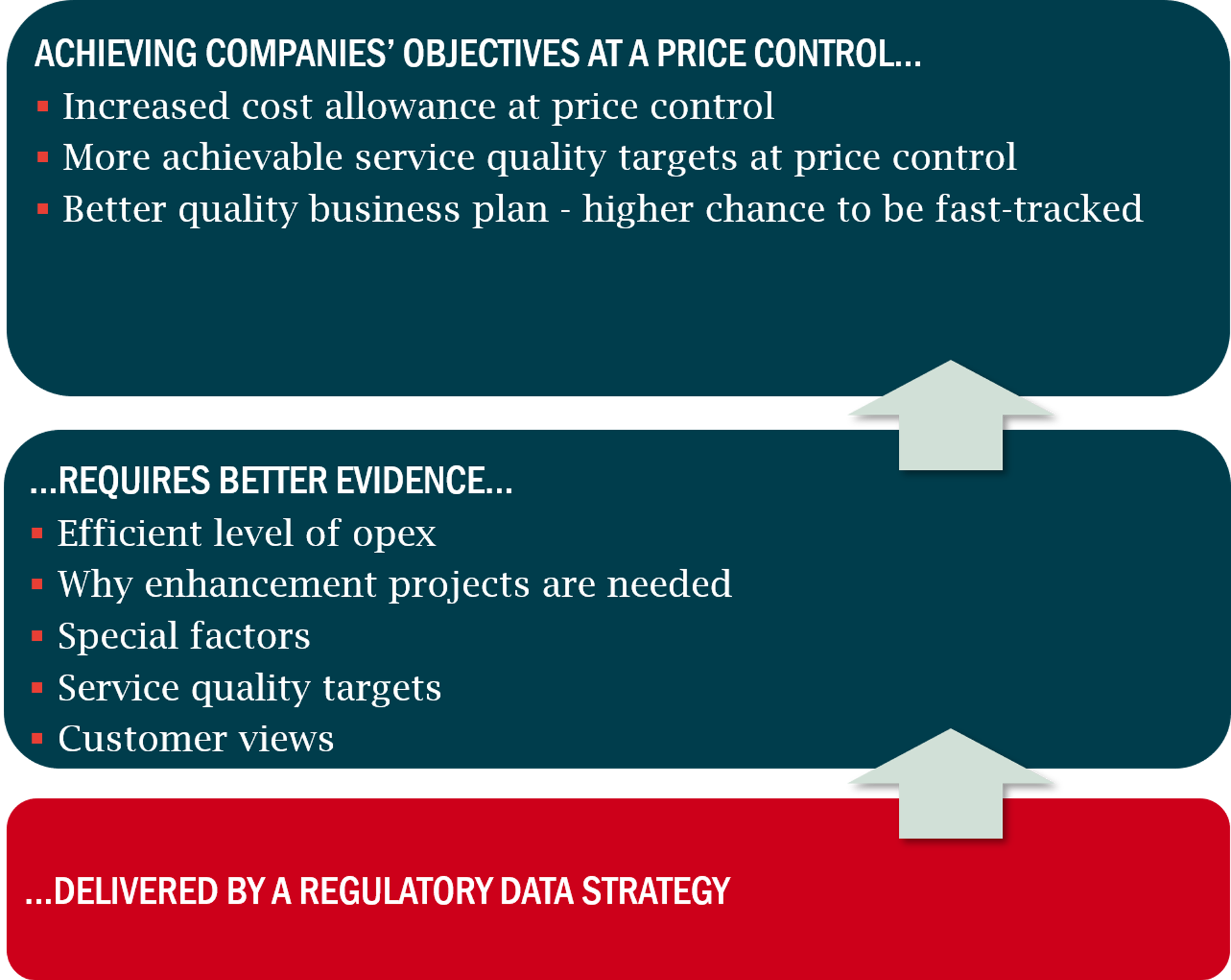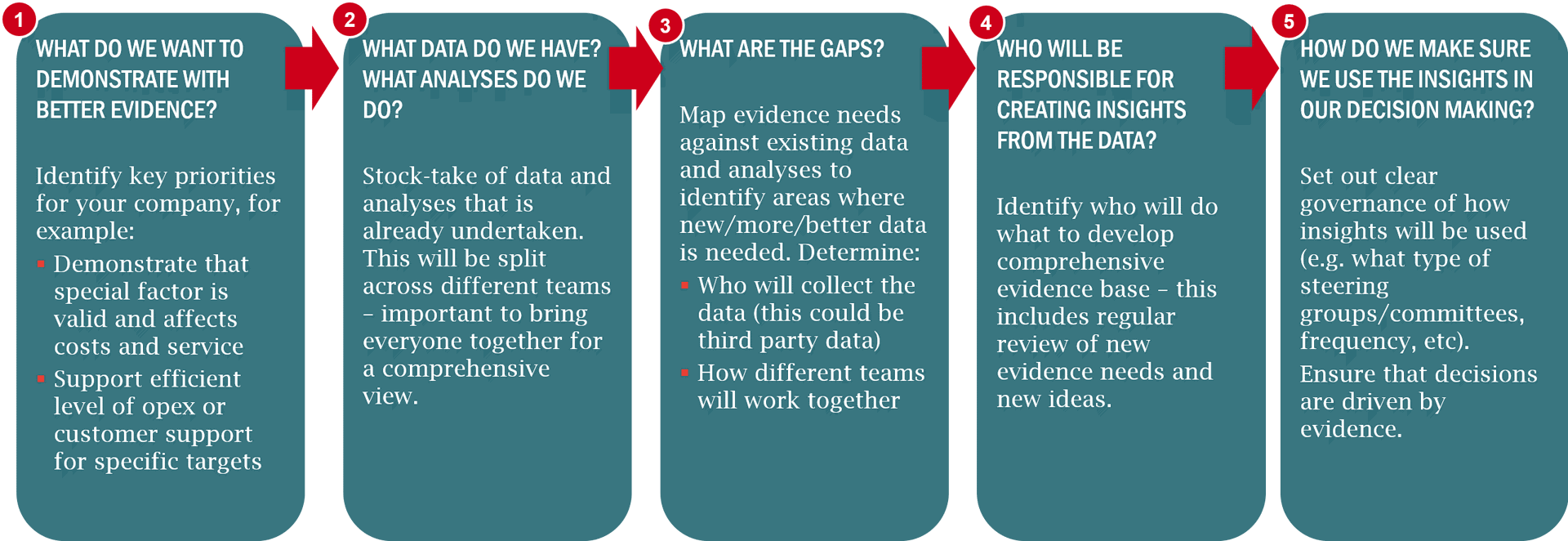How companies and Ofwat need to adapt their approach
What could the world of water look like with more and better data?
Technological progress has created new, exciting opportunities to gather and analyse data on a scale that was unthinkable a few years ago. Over the next decade we expect data collection and analysis to evolve further to provide faster and better insights to manage businesses. In the water sector, we can envisage a world where companies have the data capabilities shown in Figure 1 below.
Figure 1 Future water company data capabilities

Source: Frontier
The opportunities created by the data revolution raise two key questions:
- How can companies and Ofwat use more and better data to improve economic regulation in the future?
- Is the current regulatory approach incentivising the right amount and type of investment in more and better data?
How can companies and Ofwat use more and better data to improve economic regulation in the future?
We have identified three areas where data can transform the current approach (for more detail see the full paper):
- Companies can draw on more and better data to improve the quality of their business plans. There are great opportunities to develop better evidence on customer behaviour and views, efficient opex, cost and service special factors, enhancement projects and service quality targets. To achieve companies’ objectives at each price control, the evidence needs to be supported by a clear regulatory data strategy (see Figure 2). We have identified a series of simple steps to develop such a strategy (see Figure 3).
- Companies need to apply the latest techniques and insights developed from economic regulation to new operational data to generate regulatory and operational insights (e.g. efficiency benchmarking).
- The sector needs to develop a clear, high-level vision of how costs and service should be benchmarked at the next price controls review. If it does not, there is a risk that data is not comparable, that the incentives to collect relevant data are not sufficient and that it will be too difficult at PR24 and subsequent reviews to adopt a new approach. A longer-term vision for benchmarking costs and service would create a clear way forward and PR24 could be approached in this context. A joint vision can also ensure that high-level incentives provided by the totex approach are maintained.
Figure 2 Why companies need a regulatory data strategy

Figure 3 Steps to develop a regulatory data strategy

Are regulators incentivising the right investment in more and better data?
Investment in more and better data collection and analysis requires substantial costs and effort over multiple AMPs. Similarly, the efficiency gains from better insights will be realised over the course of several AMPs. With a challenging PR19 Final Determination and the significant problems created by the COVID-19 pandemic, investment in data will be difficult to justify. The current regulatory approach creates short-term incentives that may not be compatible with investments and benefits that stretch over several AMPs. However, in our view more and better data is essential to drive long-term efficiency, which in turn is critical to the legitimacy of the water sector. Companies therefore should not be discouraged from commercially attractive options to invest in data. This means we need to examine more closely to what extent:
- Ofwat’s £200m innovation fund could play a role in spurring investment in more and better data;
- Consistency of regulatory approach and commitment to future methods can provide sufficient certainty for companies to make investment decisions regardless of specific allowances;
- Existing regulatory incentives could be modified, or new incentives created outside the price control to facilitate more investment in data; and
- The methodology for PR24 could be more explicit in rewarding companies for efforts in this area.
Click below to download our full analysis.






